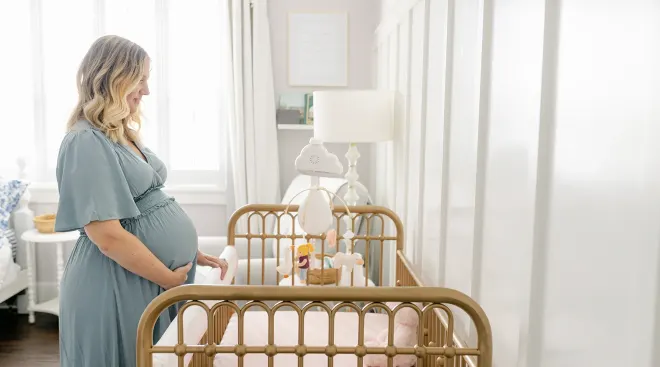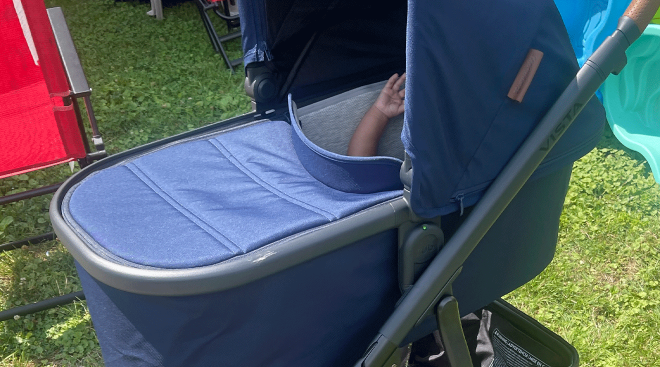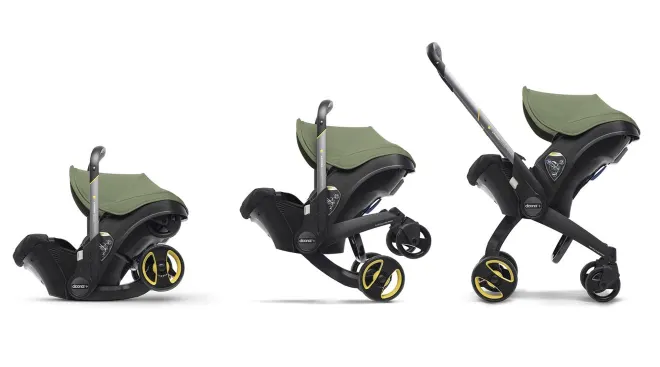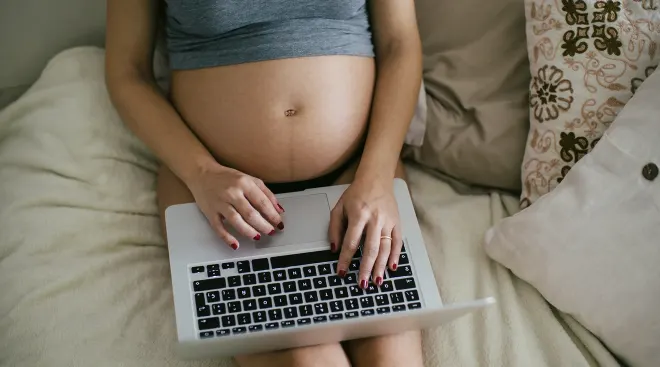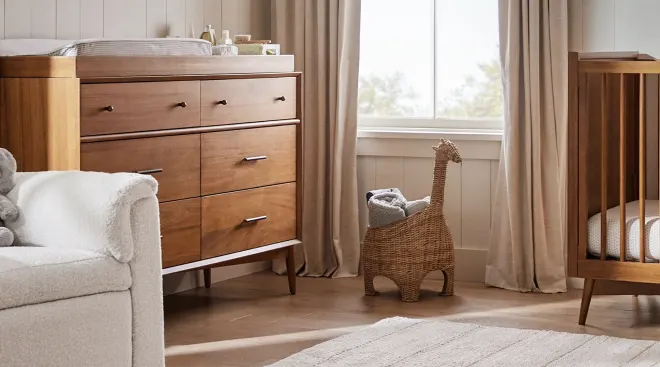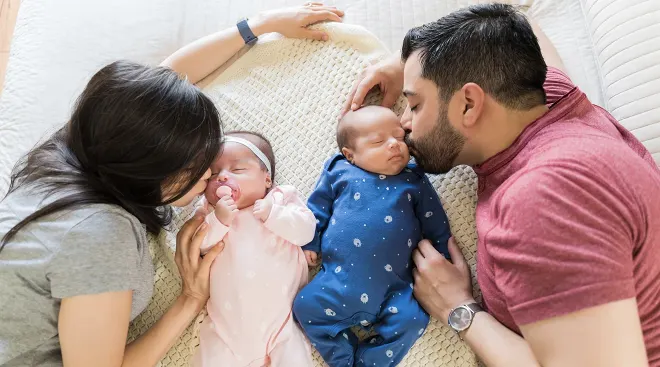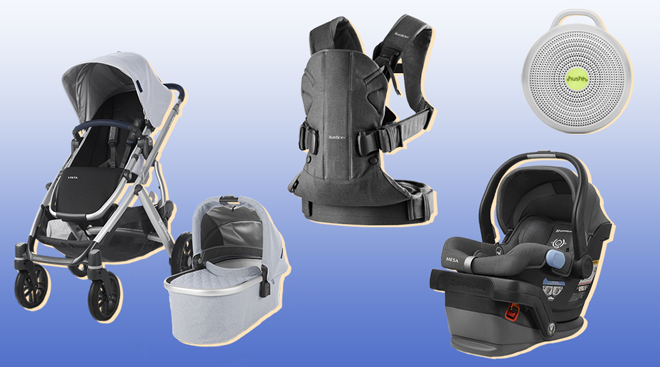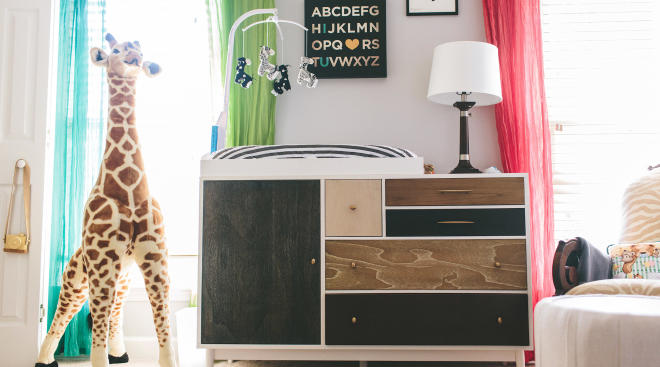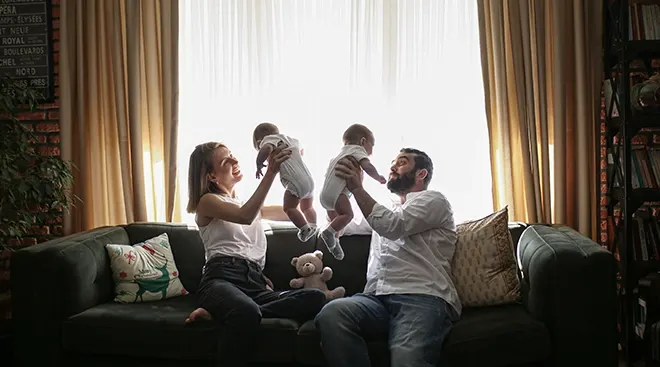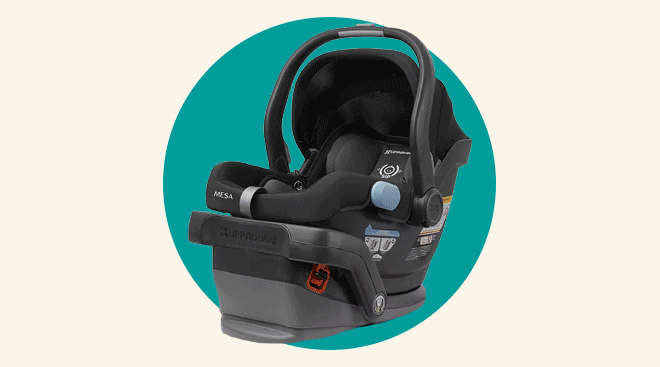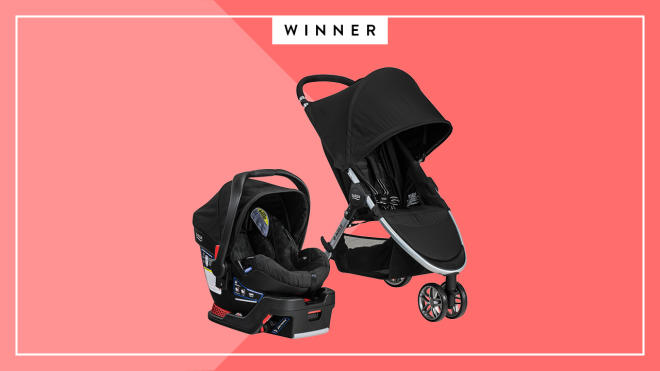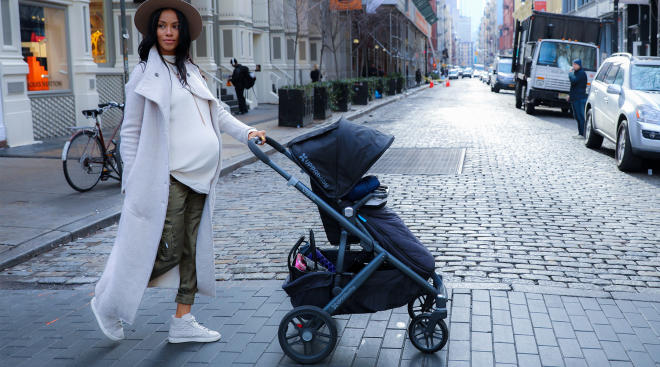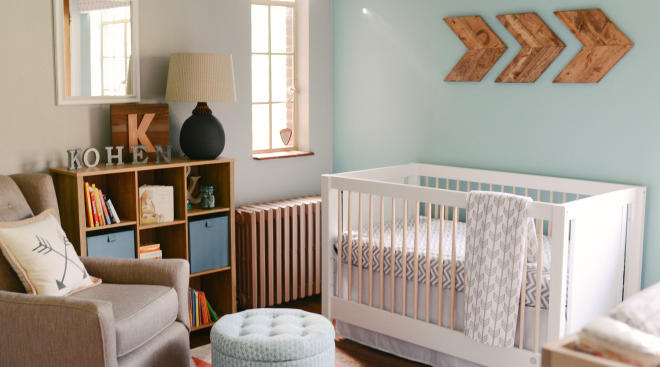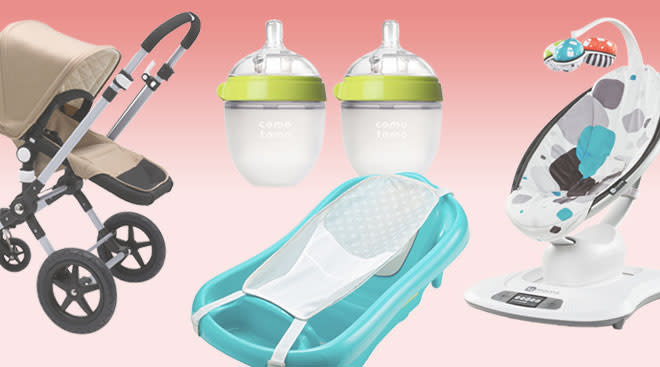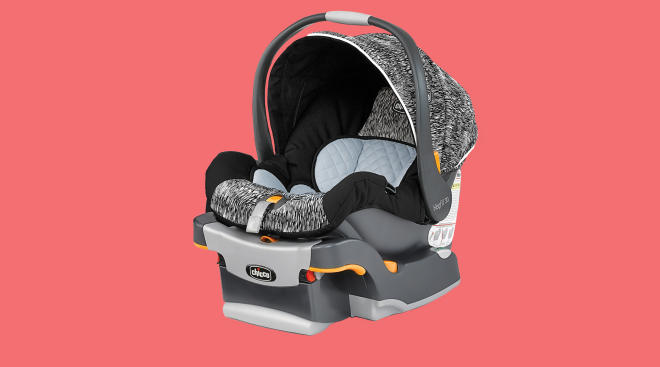When to Start Your Baby Registry
Once the fact that you’re going to have a baby really sinks in, the next big realization hits: Babies (and first-time parents) need a lot of stuff! This is where the baby registry comes in handy. It’s an easy way for expectant parents to keep track of all the gear they want to get, and a place where baby shower guests can pick out the perfect gifts. But when should you start your baby registry? And how? Keep reading for all the information you need to know before getting started.
Wondering when you should buckle down and officially start your baby registry? According to Rebekah Kimminau, CPST, a baby gear and registry expert, there’s no right or wrong answer, and largely depends on your personal circumstances: “Some parents start their registry before they’re even pregnant, and others wait until they’ve told all their friends and family.” That said, you probably want to start your baby registry during the first or second trimester, as this gives you plenty of time to tweak it. You’ll also want to get a head start on furniture, as these big-ticket items are often backordered, adds Katie Montell, baby gear expert and founder of The Baby Planner.
Another factor that can determine when to start your baby registry? Whether or not you’d prefer to pick out gender-specific baby items. If you decide to get prenatal testing in your first trimester and find out baby’s sex, you may learn whether you’re having a baby boy or girl right around week 12. If you hold off until the mid-pregnancy ultrasound, when you can get a glimpse of baby’s anatomy, it could be closer to week 20.
All these time frames may seem early, but building a baby registry can take a lot of work. With so many different brands and models of baby items out there, you’ll need time to do some research and find the products that’ll suit your family’s needs best. And trust us, it takes longer than you think to weed out what you want from what you need.
When to start your registry for multiples
Wondering if the timing stays similar for parents expecting twins or multiples? Kimminau says yes, but you may want to err on the side of caution and work ahead a bit, as multiples are more likely to arrive early. “It’s all about what works best for you—just remember to add two [or three] of everything,” adds Audra Jones, a baby gear expert with GoodBuy Gear.
When to start your registry for subsequent babies
For parents expecting their second or a subsequent child, you may consider forgoing the registry all together, Kimminau says. If you’re having a baby sprinkle, you could also follow the same timeline you did with your first child, Montell adds. One thing you’ll definitely want to do? Take note of everything you loved—and didn’t—from your first kiddo and any supplemental gear you might still need, Jones says. Keep in mind gear constantly gets upgrades and you might want to make some changes.
It’s helpful to share your registry six to eight weeks before your baby shower, around the time your invitations go out, Montell says. If you’re not having a shower, you can share it whenever you finish, Kimminau adds, so loved ones can see it throughout your pregnancy and baby’s arrival. Jones says the 27- week mark is a good benchmark: “People are going to start asking at this point, and it sets you up to decide what else you need in the final weeks of pregnancy,” she says.
It can be overwhelming trying to figure out how to start your baby registry—and there’s no one right method to do so. One way you might go about it is to ask yourself questions about your lifestyle and the products that would be most useful to you. “When thinking about what to add to your registry, ask yourself how being a new parent, or parent to a new baby, looks to you,” Jones says. The top questions she and Montell say to focus on are:
- Where will baby sleep safely?
- How will baby eat?
- How will baby be transported safely?
- How will baby be diapered and kept clean?
- Are you an active family who walks a lot? Hikes?
- Do you currently have other children?
- Are you planning to have another child in the future?
- Do you live in an apartment or house?
- How often do you plan to travel?
Along with these questions, Jones also recommends asking yourself what matters most to you. “Sustainability, bargain shopping, brand names, aesthetic and functionality are going to be different from family to family and that’s okay,” she says. “Your needs will vary based on your exact scenario, whether you’re a first-time parent, planning to adopt and so much more.” After asking yourself these questions, start doing some research on products.
What to consider when selecting where to register
There are lots of options for where to register for baby—and each has its own set of pros and cons. “Some let you register in store, others are online only, but you can only add products sold in their store, and still others (usually called a ‘universal registry’) allow you to add items from any website or store,” Kimminau explains. Beyond these features, some registry sites also offer freebies like welcome boxes or design services, group gifting options and completion discounts for anything left on your registry. Ultimately, where you build your registry will depend on personal preferences. Learn more about some of the best baby registry websites here.
Now that you’ve thought about the type of gear you’ll need and where you want to register, it’s time to get down to brass tacks: what to register for. You already know babies need lots of gear, including essentials like a car seat. “The last thing you want to be doing is scrambling to have a car seat to bring baby home from the hospital, so make sure you have this item ready early,” Jones says. All three experts also cite the following as other essentials to have:
- Transportation: stroller, baby carrier
- Nursery: crib, changing table, monitor
- Bathing and hygiene: diapers, wipes, swaddles, clothes
- Learning: toys, books, bouncer, swing
- Feeding: milk storage, pumps, bottles, baby utensils, bibs
For a complete checklist of all the baby essentials you’ll need, click here.
The experts agree there’s really nothing off-limits when it comes to adding items to your registry. “It depends on your comfort level,” Kimminau says. “Some parents do put postpartum care items, nursing bras and other more intimate items on their lists, while other parents prefer to purchase those items themselves.” Montell notes she sometimes creates private categories for these items for her clients that aren’t visible to their registry guests. “However, many parents are just showing everything on the registry these days to bring more awareness and normalcy into postpartum and breastfeeding,” she adds.
While there isn’t much that’s off limits to add to your registry, you should still offer loved ones a variety of price points. “It’s always good etiquette to fill your registry with a wide range of high- and low-ticket items so everyone can gift a registry item that they feel comfortable and excited about,” Jones says.
Wondering if it’s okay to ask for cash on your baby registry? Montell and Kimminau agree this largely depends on your background, social culture, family and friends. That said, both note it’s still pretty common to see people ask for cash in the form of gift cards, or funds like a “diaper fund,” “college fund” or “babysitting fund.” “I find cash and gift cards are actually really helpful for new parents,” Kimminau says. “There are some baby items you may not purchase until after your baby has arrived, and it can be helpful to have the cash gifts on hand to offset those items that pop up.” Plus, Jones says some family members and friends may actually prefer to give cash, as it’s the most convenient way to contribute.
Ready to start putting together your baby registry? The following tips may be helpful!
- Shopping in-person vs. online: Jones says shopping in-person is a great way to see items up close, feel any fabrics, test functionality and experience new gear. That said, she caveats that online stores often offer more brands, colors and accessible pricing (unless you’re trekking to an outlet). Kimminau agrees, stating that big-box stores usually only carry a limited selection of baby gear, so shopping in-person can be hard if you don’t live in a big city with boutiques. “The most helpful information usually comes from reading reviews from real parents to narrow down selections,” she adds.
- Be selective about asking for advice: “One of the most common mistakes I see first-time parents make is asking all of their friends and family for advice on what to add to their registry. This can quickly lead to decision-fatigue,” Kimminau says. Plus, some of the advice might be coming from families who have very different lifestyles, needs or living situations, and may not be as applicable to you. If you want advice from loved ones, ask those who have similar lifestyles, as well as experts who “are well-versed in all baby gear and lifestyles and can thoughtfully help you narrow down your options,” she says.
- Look for items that will grow with your child: These include things like convertible cribs, car seats, high chairs and more, Montell says. Some good news? Many manufacturers these days focus on making functional products designed to last from babyhood to toddlerhood and beyond—helping you get more bang for your buck.
- Stick to the essentials: While it can be tempting to register for all the things your little one will need in their first few years of life, it’s best to focus on the essentials you’ll need right away, and sprinkle in some of those irresistible older-kid things. “Less is more. There are lots of items that are common but you don’t necessarily need or won’t need until your baby is 6+ months old,” Montell says. It may be worth it to wait to buy certain low-cost, non-essential items (i.e. bottle warmers) to see if there are any alternatives that work better for your family.
Ideally, you’ll want to have all the essential baby gear you’ll need for the fourth trimester in hand by 36 weeks, all three experts say. “We all become parents in many different ways, but this time frame is still a good rule of thumb for adoption, surrogacy or any other method for welcoming your newest family member into the world,” Jones says.
Ready to start your baby registry? Create your ultimate, universal baby registry on TheBump.com.
Plus, more from The Bump:
Audra Jones is an in-house gear expert and product owner at GoodBuy Gear, a consignment store for baby gear. She has nearly five years of experience managing the brand’s gear catalog of over 1,200 brands, overseeing inbound and processing protocols and ensuring each resale item is properly quality checked. Jones currently lives in Colorado with her husband and two daughters. She completed her undergraduate degree at Metropolitan State University of Denver.
Rebekah Kimminau, CPST, has specialized in the world of baby gear for over 10 years as a baby gear and baby registry expert. She’s the founder of The Baby Gear Consultant, a platform that helps families build their dream registry and make important decisions about the baby gear they’ll use daily. She’s also an international board certified lactation consultant, babywearing educator, newborn care specialist and postpartum doula.
Katie Montell is the founder of The Baby Planner, a professional maternity concierge service that helps expectant parents get their homes and lives ready for baby’s arrival. She earned her bachelor’s degree from the College of Charleston, her master’s degree from Duke University and spent the first 12 years of her career working in management consulting.
Learn how we ensure the accuracy of our content through our editorial and medical review process.
Navigate forward to interact with the calendar and select a date. Press the question mark key to get the keyboard shortcuts for changing dates.




































